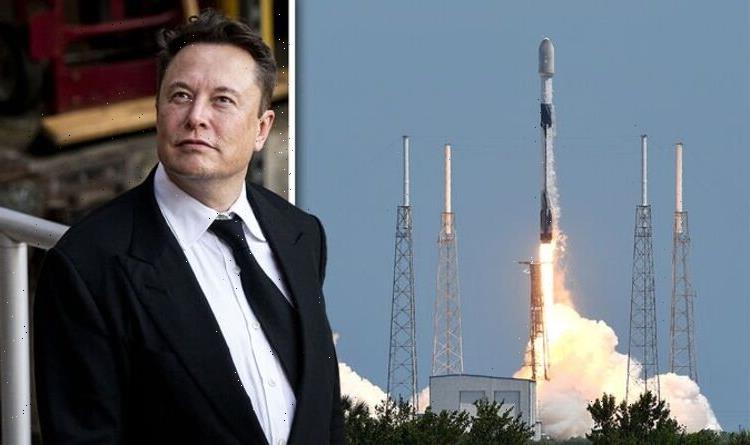Ukraine: Liz Truss addresses economic cost following invasion
We use your sign-up to provide content in ways you’ve consented to and to improve our understanding of you. This may include adverts from us and 3rd parties based on our understanding. You can unsubscribe at any time. More info
Russia continues to bombard Ukraine, with Ukrainian president Volodymyr Zelenskiyy reporting shelling of civilian infrastructure and intense attacks, including on ambulances. With fears the war could turn cyber – SpaceX CEO Elon Musk has offered aid to Ukraine via his Starlink satellite.
What is the Starlink satellite?
Starlink is a constellation of satellites created by SpaceX, with the aim of launching satellite internet coverage which will one day span the entire globe.
In 2021 the number of satellites launched by SpaceX reached more than 1,700, which will communicate with ground-based transceivers.
The most recent update in February 2022, the beta internet service offering is available in 29 countries.
Now Mr Musk has activated the network in Ukraine, saying “more terminals en route”.
Read More: Elon Musk activates Starlink over Ukraine as rockets fall on Kyiv

The activation of Starlink came after Ukraine’s First Vice Prime Minister and Minister of Digital Transformation Mykhailo Fedorov asked for help.
He said Ukraine had been battling sustained cyberattacks from Russia.
Tweeting to Mr Musk, Mr Fedorov said: “While you try to colonize Mars — Russia try to occupy Ukraine! While your rockets successfully land from space — Russian rockets attack Ukrainian civil people!
“We ask you to provide Ukraine with Starlink stations and to address sane Russians to stand.”
Responding Mr Musk said: “Starlink service is now active in Ukraine. More terminals en route.”
On Saturday, internet monitors reported connectivity in Ukraine has been affected by the Russian invasion.
Areas struggling the most for internet connection were primarily in the southern and eastern parts of the country where fighting has been heaviest.
Russian forces captured the southeastern Ukrainian city of Melitopol on Saturday, Russia’s Interfax news agency reported, as Moscow launched coordinated cruise missile and artillery strikes on several cities, including the capital Kyiv.
Connectivity to GigaTrans, Ukraine’s main internet provider, dropped to below 20 percent of normal levels before returning to higher levels in the early hours of Friday morning, according to internet monitoring organisation NetBlocks.
Alp Toker, director of NetBlocks, said: “We currently observe national connectivity at 87 percent of ordinary levels, a figure that reflects service disruptions as well as population flight and the shuttering of homes and businesses since the morning of the 24th.
“While there is no nation-scale blackout, little is being heard from the worst affected regions, and for others there’s an ever-present fear that connectivity could worsen at any moment, cutting off friends and family.”
Source: Read Full Article
